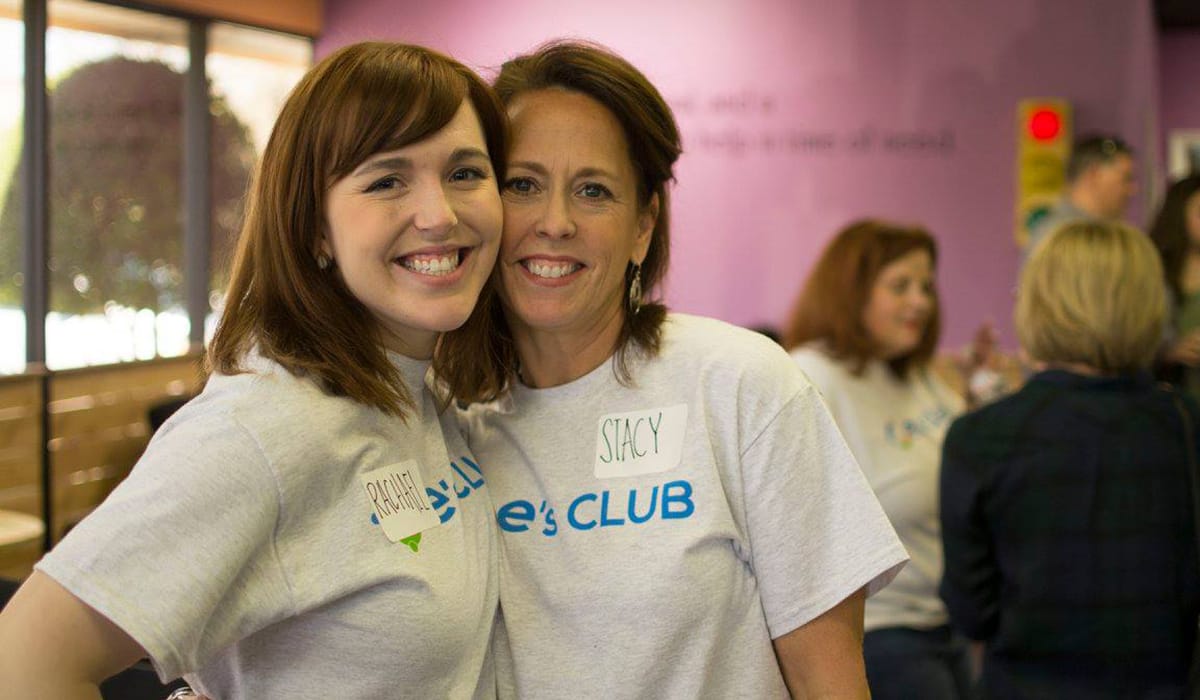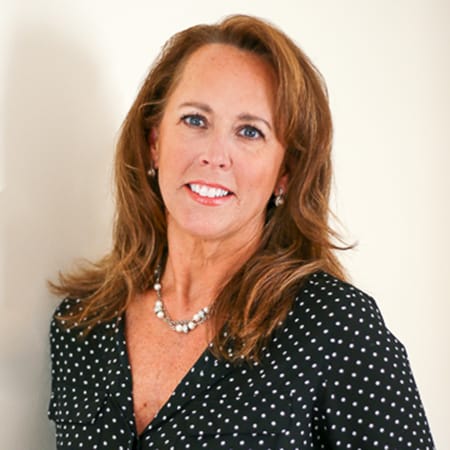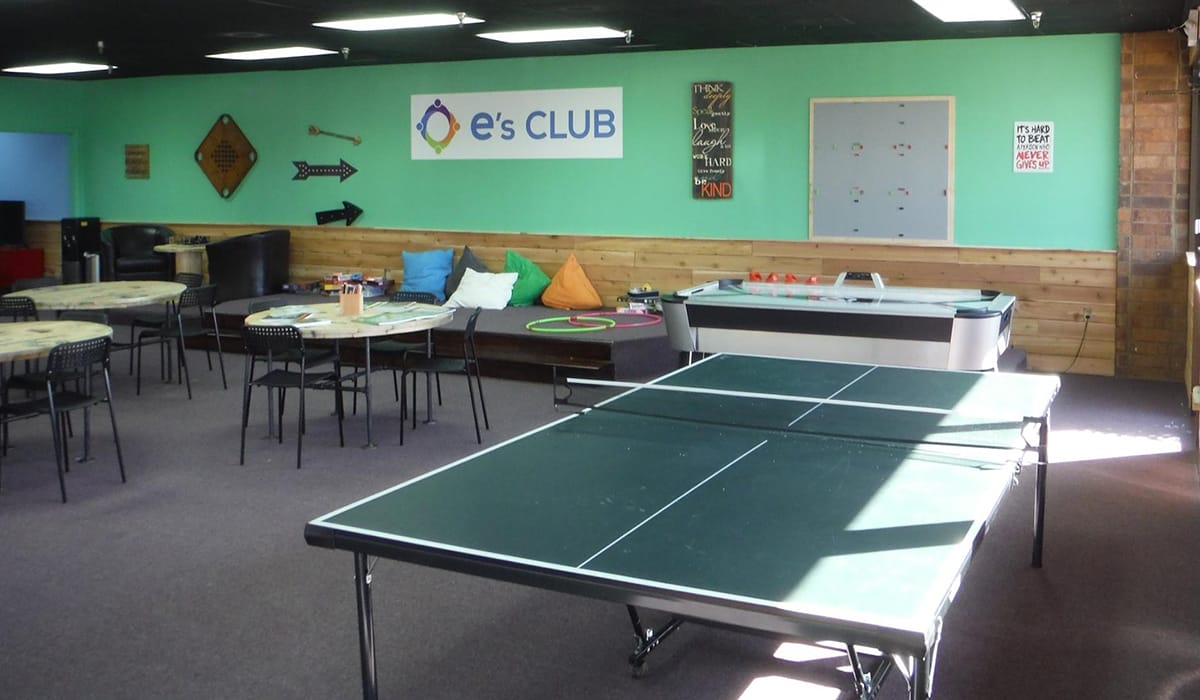Transforming Tragedy Into Hope and Community for Autistic Youth

Meet Daily Point of Light Award honoree Stacy Horst. Read her story, and nominate an outstanding volunteer or family as a Daily Point of Light.
Content Warning: Points of Light is proud to share the following uplifting and inspiring story. However, we acknowledge that portions mention suicide and may be difficult for some readers. We encourage you to please care for your own wellbeing above all.
In the wake of profound, personal loss, Stacy Horst, with husband Darren at her side, has channeled her grief into a powerful force for good. The tragic loss of their daughter Erin, who was bullied and felt excluded due to her autism, led to her passing at just 17 years of age when she died by suicide. This heartbreaking event spurred Stacy to take action, ensuring that Erin’s legacy would be one of hope, understanding and community for other young people facing similar challenges.
Determined to make a difference, Stacy co-founded Erin’s Hope for Friends (EHFF). This nonprofit organization, driven by the mission to prevent any other family from experiencing such a loss, led to the creation of “e’s Club.” This unique and welcoming space offers a safe haven where more than 400 teens and young adults with autism can socialize and build friendships during the weekends. The success of e’s Club in Atlanta has led to the opening of another location in Lexington, Kentucky, bringing Stacy’s vision of national expansion one step closer to reality.
Stacy’s ambition for e’s Club extends far beyond its current locations. Her dream is to see an e’s Club in every area of the country, providing a supportive and inclusive environment for autistic teens and young adults. Her tireless efforts in fundraising and awareness-raising over the past decade are steadily turning this vision into a reality, one community at a time.
Read on for more of Stacy’s story, including how she’s ensuring Erin’s legacy lives on.
Tell us about your volunteer role.
My volunteer role started as one of the co-founders of Erin’s Hope for Friends (EHFF). Currently, I’m also one of the board officers as the secretary and I work in development to help grow the organization. In the beginning, it was everything from cleaning the bathrooms to volunteering with the kids.

How and why did you decide to create this organization?
We had a 17-year-old named Erin. She was on the autism spectrum. And unfortunately, she was bullied at church and at school, through Facebook and social media, through email. And she took her own life at 17.
So, we sat down on the floor of her bedroom four days later and knew we needed to do something. We didn’t want other kids like her to have to go through what she went through – and other families like ours – to have to go through what we were going through.
Then, there was the impetus of e’s Club, the clubs that we currently have. Unfortunately, these individuals are challenged socially, even though we’re all made for friendship and companionship. They don’t necessarily get invited to birthday parties or football games or anything you can think of on the weekends. So, we decided to open a club, which resembles a Dave & Busters, if you will. It serves as a place for these kids to come that has nothing to do with therapy; it’s a place to come hang out and make friends with other people just like themselves.
Our goal is to open clubs in every major city. Ultimately, we’d like to be the size of a Boys and Girls Club, with one in every city. So, I want to keep expanding nationally and then internationally. Whatever we can do, because saving one life and one family means all the difference.
What’s been the most rewarding part of your work?
I would say that, as parents, we try to help our children to be able to work and be social in a normal environment. All that our members ever needed were to be with each other. They accept each other. They don’t care about their quirks. It’s just been a phenomenal thing to see since we started the club.
We have volunteers who come in through National Charity League and Young Men’s Service League, who are teens. They’re coming to a club where they’re going to hang out for three hours with autistic teens, and they have absolutely no idea how that’s going to go. Most people, when they hear “autism,” may think non-verbal. They might go to the extreme.
But these teen volunteers come in and three hours later, they’re telling us they’ve had the best time of their lives. They can’t wait to come back; they’ve had so much fun. That is something that we didn’t expect – that we are also educate neurotypical individuals on what autism looks like. They’re funny, they’re smart, they’re incredibly fun. So that was kind of an adjunct prize that we didn’t think about in the beginning.

Why is it important for people to get involved with the causes they care about?
I think that volunteering cultivates empathy and compassion and a deeper understanding of challenges that others face, outside of your own. It can create a more compassionate and inclusive society as a whole – those lessons you learn when you step outside your comfort zone to volunteer or help someone else are so valuable. I think it actively shapes the world around us, for the better.
Any advice for people who want to start volunteering?
What are you passionate about? What is it that drives your innermost self? For some people it’s animals or children or affordable housing. Each person needs to find what they’re most passionate about. And there is always, always something you can do – even if it’s an hour of your time once a month. It doesn’t have to be a 10-hour-a-week commitment. It’s about finding what you’re passionate about and finding those organizations that work within your passion, and then seeking out what you can do, to your level of time or commitment. We have people who volunteer in the club or in the office or only when we have fundraisers. Maybe it’s only two hours a year. There are many different levels at which you can get involved.
What do you want people to learn from your story?
I would like people to know that one in 10 children or teens diagnosed with autism either has suicidal thoughts or acts on them. In the state of Florida, we currently have 435,600 diagnosed cases. That means, as we speak, 43,560 people are either having suicidal thoughts or trying to act on them. This isn’t because of Autism. It’s because of the isolation and lack of acceptance.
All of us were created for relationships. We need to create these clubs to have this place where they can come, be themselves and make friends. I know that we’re saving lives, because we’re being told that every day. We hear this from our attendees frequently.
The other aspect of that is that hopefully the world is going in the right direction – though we’re not there yet – and everyone needs to be included. We need to accept everyone for who they are, not who we want them to be. And that starts at home. We need more education about that, especially with parents.
Do you want to make a difference in your community like Stacy? Find local volunteer opportunities.
If you or someone you know may be considering suicide, contact the National Suicide Prevention Lifeline by texting 988 or by calling 1-800-273-8255, or text HOME to 741741 to talk to a trained crisis counselor through . Both resources are anonymous, free and available 24/7. Crisis Text Line. All resources are anonymous, free and available 24/7.
